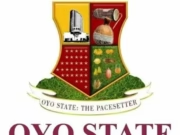
The Rise and Fall of Okra: The Story of Africa’s Most Promising Open Banking Startup’s Shutdown at Its Peak.
The news of Okra’s shutdown has shocked observers of Nigeria’s fintech industry, especially considering the crucial role the startup played in the country’s open banking sector.
In 2020, Okra seemed poised to become a standout success story in African technology, boasting visionary founders, support from Silicon Valley, rapid revenue growth, and a product that was set to transform finance across the continent.
While many are still puzzled by the downfall of such a promising company, an insider has provided insights into the issues that led to Okra’s decline, turning it from a celebrated startup into a cautionary tale.

The Rapid Ascent
Okra was more than just another startup; it attracted top talent from major global companies like Google, Disney, Mastercard, and PayPal, all eager to contribute to building Africa’s financial data infrastructure. Co-founded by Fara Ashiru Jituboh (engineering lead) and David Peterside (business and go-to-market lead), Okra aimed to be the leading API provider for financial data access in Nigeria and beyond.
By 2021, Okra had successfully raised $4.5 million in pre-seed and seed funding from investors like TLCom and Susa Ventures. The company’s investor roster included notable names such as Dropbox co-founder Arash Ferdowsi, Sequoia Capital Scouts, and Accenture Ventures, which made its first investment in Africa by backing Okra.
Okra’s business model, which charged per API call, quickly proved successful, allowing the company to reach $1 million in annual recurring revenue (ARR) within just a year. This success led to a discreet $12 million Series A funding round at a $92 million post-money valuation, led by Base10 in early 2022. By that time, Okra was serving banks, fintechs, and government agencies, with its API integrated into products from UBA, Access Bank, MTN, Interswitch, Paga, Bamboo, Trove, and others. The go-to-market team, led by Peterside, was known for its discipline and effectiveness, often outmaneuvering competitors like Mono to secure significant contracts.
Issues Beneath the Surface
After the Series A funding, Peterside reportedly grew increasingly frustrated with the engineering team’s performance, feeling that the technical side of the company was falling behind. This tension between the co-founders began to affect operations.

“The go-to-market team kept securing contracts, but engineering struggled to implement them. We kept missing the final step,” said a source.
The situation reached a breaking point in October 2022 when Peterside left to pursue a new venture. Without his aggressive go-to-market strategy and with engineering still facing challenges, particularly due to reliance on screen scraping, revenues began to decline. The economic environment worsened as the devaluation of the Naira further squeezed margins, leaving the company in a precarious position.
In an attempt to survive, Fara shifted the business focus toward cloud infrastructure, but this pivot failed to gain traction. By mid-2025, it became clear that Okra could no longer continue, leading to its shutdown. Employees were given six months’ severance pay as a final gesture of goodwill from a company that excelled in culture, partnerships, and regulatory foresight but struggled with execution.
In a media statement confirming the shutdown, Fara Ashiru said, “The company made the decision to wind down operations in May. It was an incredible journey; we built impactful technology, collaborated with some of the biggest brands across the continent, and helped pioneer open banking in Africa.”
Reflections on the Past
Okra’s closure adds to a growing list of African tech startups that have shut down after raising significant funds. In 2022, the Kenyan logistics startup Sendy, which had raised $20 million in Series B funding, ceased operations due to a failed business pivot and market saturation. Nigeria’s 54gene, once valued at over $150 million and backed by Y Combinator and Adjuvant Capital, also folded in 2023 amid claims of mismanagement and restructuring issues.
In 2024, another Nigerian fintech, Thepeer, shut down after failing to scale and align its product with market demands, citing compliance issues and slow adoption of digital wallets in Nigeria as key reasons. Thepeer had raised a $2.1 million seed round in June 2022. Other startups, like Kune Food in Kenya, which aimed to revolutionize food delivery, closed shortly after its $1 million pre-seed round, citing high operational costs.
Is It Truly the End for Okra?
Co-founder Fara Ashiru has reportedly joined UK-based startup Kernel as Head of Engineering. According to her LinkedIn updates, she transitioned to this new role in June 2025, following her departure from Okra in May, marking the end of a five-year journey.
However, Ashiru is not ready to give up on Okra. In her latest LinkedIn post, she acknowledged that Okra had played a significant role in promoting open finance and creating new opportunities within the fintech ecosystem over the past five years.

She indicated that Okra has only shut down its cloud services business, Nebula, as it “enters a new chapter” and is now “undergoing internal restructuring with a renewed focus on scaling its payments business.” A statement shared with Nairametrics also mentioned that Okra is “exploring new options to enable the continued growth of its payments business as part of a broader strategic reset.”
“Following a period of major internal transitions, the company is refocusing on its core strengths in payments infrastructure—streamlining operations to drive growth and long-term sustainability,” the statement read.
Insights from Industry Analysts
Paul Ogunedo, CEO of AWI Energies, believes Okra’s story is not one of failure but rather one of bold experimentation. “They were ambitious and opened the door for others. In Africa’s tech ecosystem, we must learn to honor the pioneers, even when they don’t reach the finish line. Without them, there is no starting line,” he stated.
However, he noted that one of Okra’s missteps was its pivot to cloud services, which became too costly due to Nigeria’s currency depreciation.
Bashir Are, CEO of the Lagos State Lotteries & Gaming Authority, suggested that Okra’s failure could pave the way for the next significant advancement in Africa’s payment infrastructure. He referenced American companies like Digex and Exodus Communications, which shut down in the early 2000s but ultimately made way for AWS, Azure, and Google Cloud. “Okra’s Nebula faced similar challenges: foreign exchange pressure, scaling issues, and fierce competition. Yet its vision for a local cloud, billed in Naira and designed for African compliance, was ahead of its time,” he remarked.
Are emphasized that Nigerian startups need to proactively address macroeconomic risks like currency fluctuations.

Tech lawyer Favour Ibe pointed out that Okra’s collapse raises urgent questions about exits, legal frameworks, and the reasons behind the failure of promising African startups. She noted that while liquidity, rather than funding, is the ultimate goal, African startups often face a limited window for exits.
“Legal issues are exacerbating the situation. Problems like disorganized cap tables, unfiled shareholder agreements, and inadequate intellectual property audits, as seen in Andela’s early challenges, hinder potential exits. The closure of Okra highlights the importance of maintaining legal standards from the very beginning,” she stated.
Open Banking in Nigeria
Okra’s sudden departure has created a significant gap in Nigeria’s open banking landscape. As the leading player, it boasted the most reliable infrastructure, the most proactive go-to-market team, and the strongest alignment with regulatory requirements.
Mono, which was once Okra’s closest competitor, has shifted its focus from core open banking to its consumer product, OWO. Other competitors have either become inactive or are merely trying to survive.
“If Mono could have taken over Okra’s role, they would have done it by now,” one insider remarked candidly.
Now, industry experts are turning their attention to the Central Bank of Nigeria (CBN), which has committed to introducing an open banking policy framework by August 2025.
This initiative could revitalize the sector, provided it includes clear regulations and support for infrastructure.
Join our WhatsApp community
Join Our Social Media Channels:
WhatsApp: NaijaEyes
Facebook: NaijaEyes
Twitter: NaijaEyes
Instagram: NaijaEyes
TikTok: NaijaEyes







































